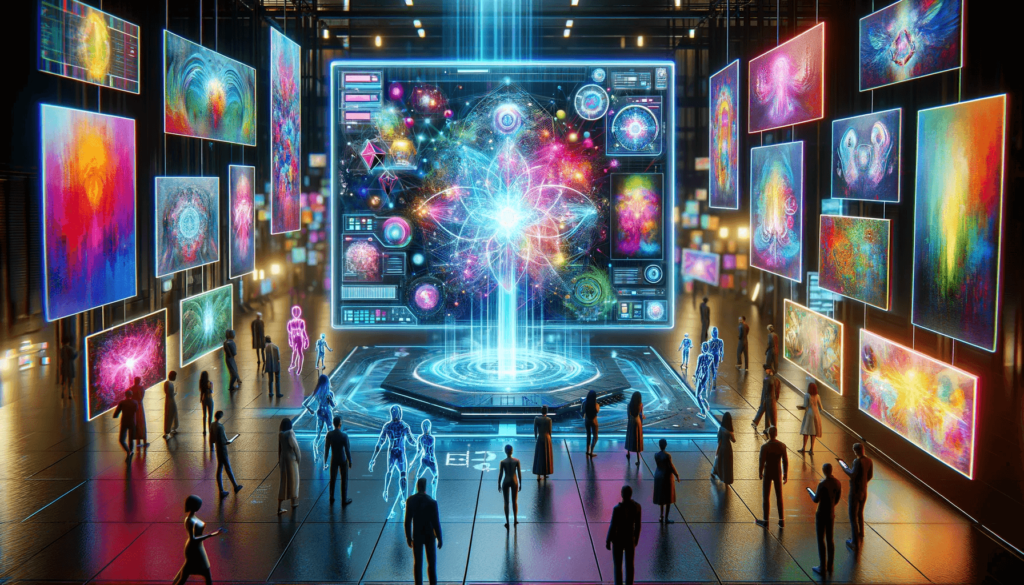
Did you know that the global market for AI-generated art is expected to reach $15 billion by 2030? AI-generated art, created using artificial intelligence techniques like machine learning algorithms and generative models, has taken the art world by storm in recent years. From intricate digital paintings to unique sculptures, AI has opened up a whole new realm of creativity and artistic expression.
But the question remains: can you sell AI art? The answer is yes, you can legally sell AI-generated art, with a few considerations. Just like any other artwork, AI-generated art is protected by copyright if it is original and creative. However, if you are using an AI model to create a derivative work based on existing copyrighted art, you may need permission from the copyright holder before selling it. It is important to review the terms of service of the AI art generator you are using, as it may have restrictions on the usage and commercialization of the generated art.
Selling AI art can be a profitable venture, as there is a growing market for unique and tech-infused artworks. But how can you effectively sell AI art? In this article, we’ll explore the opportunities and considerations of selling AI art, and provide you with valuable tips on how to monetize your AI creations successfully.
Key Takeaways:
- AI-generated art is protected by copyright if it is original and creative.
- Permission may be needed if creating derivative works based on existing copyrighted art.
- Review the terms of service of AI art generators for usage and commercialization restrictions.
- Understanding the art world and market trends is crucial for selling AI art effectively.
- Personalize your AI art to give it a unique touch.
How to Sell AI Art Online
When it comes to selling AI art online, there are several platforms and strategies you can consider. One option is to sell directly to buyers through online marketplaces like Etsy, Artfinder, or specialized AI art marketplaces like Art AI. These platforms provide you with a platform to showcase and sell your AI-generated art to art enthusiasts and collectors.
Another option is to license your AI art to businesses who are looking for unique artworks to enhance their products or marketing materials. Companies often seek out AI-generated art to give their brand a tech-savvy and innovative image.
Additionally, you can explore the option of selling physical products with your AI art. Whether it’s high-quality art prints, merchandise like t-shirts and mugs, or even teaching AI art creation through online courses or workshops, there are multiple ways to diversify your income streams and maximize the potential of your AI art.
It is important to research and understand the best sales platforms for your specific needs, whether it’s a focus on physical products, digital downloads, or licensing opportunities. Platforms like ArtStation, Etsy, Redbubble, Society6, and Saatchi Art are popular choices for selling AI art online. By leveraging these platforms and implementing effective marketing strategies, you can reach a wider audience and increase your chances of making sales with your AI-generated art.
Conclusion
Selling AI art can be a rewarding and profitable endeavor for artists who harness the power of artificial intelligence in their creative process. With the market for AI-generated art on the rise, there are abundant opportunities to monetize your creations and explore new horizons in the art world.
To successfully sell your AI art, it’s crucial to understand the legal implications and ensure that your artwork complies with copyright laws. By doing so, you can confidently showcase and sell your AI art to art enthusiasts, collectors, and businesses alike.
Discovering the right sales platforms is key to reaching your target audience. Whether you choose to sell directly on online marketplaces, license your art, create physical products, or even teach AI art creation, each avenue offers unique opportunities to showcase your talent and expertise.
Success in the AI art market also requires staying in tune with the latest market trends, incorporating your own unique style, and adapting your approach as the art world evolves. By leveraging dedication, creativity, and a strategic mindset, you can navigate the burgeoning digital art marketplace and unlock the full potential of your AI art.